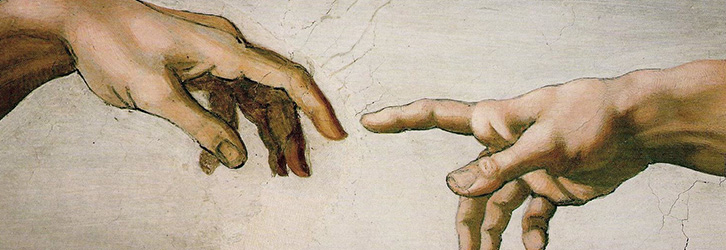The Difference Between Atheists and Christians
See how Christianity is the only true source of freedom the world has ever known.

“If there is no God, There would be no atheists.” – G.K. Chesterton
Have you ever wondered why atheists work so hard to get rid of any public reference to God in any form? Have you ever been surprised at the level of anger that you have encountered in someone claiming to be an atheist? Well, there is a reason for all of this—There really is a God. And that God is unconditional love.
It is often claimed by atheists that the Christian religion (or all religion) is a form of slavery. But the truth is that Christianity is the only true source of freedom the world has ever known. The truth is that virtue, true self-control, or self-discipline, is the only freedom that is truly free. Again, Chesterton puts it succinctly when he says, “The whole truth is generally the ally of virtue; a half-truth is always the ally of some vice.” The teachings of Christianity are rooted in virtue, the whole truth, while the “wisdoms” (read: vices) of the world are more often than not, half-truths.
[content-ad]
The atheist will boldly proclaim that he or she is the more modern, the more intellectually gifted, and that the religious believer is antiquated, dull-witted, and superstitious. But it is the atheist who puts his or her faith in temporal, ephemeral, intellectual fads. The Christian believer puts his or her faith in the Creator of all that is seen and unseen. The atheist believes that he or she knows it all, based on the now-present environment of his or her own mind. The Christian humbly knows that he or she does not know it all, but that God has blessed our minds with the capaciousness and the hunger to want to always learn more, even to come to know Him. The atheist, more often than not, is a philosophical pessimist. The Christian is an optimist. The atheist’s life and feelings toward religion are ruled by anger. A Christian’s life is ruled by, and freely cooperates with, love. Because the atheist hates everything about God and religion, he or she often then hates the religious believer. The true Christian, or religious believer, on the other hand, loves the atheist and continues to pray for him or her, treats him or her with compassion and forgiveness. Sadly, this only angers the atheist even more.
Atheism has no ground on which to stand. If, as it argues, everything came from nothing, this can be nothing but a contradiction in terms of epic proportions. Christianity recognizes that everything finds its origins in the very Ground of Being, God. The Christian knows and believes that God is Good, indeed, that God is the source of all that is good. As science recognizes that darkness is the absence of light, the Christian recognizes that evil is the absence of good. Because the world is so often in (moral) darkness; because evil so often enters our lives; Christians recognize that something is missing. We know that sin is a Christian doctrine that can be proved. The evidence is all around us. The atheist wants to deny the existence of sin at his or her own peril. The Christian wants to recognize his or her own sin, to turn away from it, in order to find freedom from it. The atheist denies the need for divine mercy, the Christian knows his or her need for it, freely turns toward it in humility, and gives thanks for it by “sharing it forward.” At least that is what a Christian ought to do. If the atheist has an argument at all, it is because there are not enough of those who claim to be Christian who are actually behaving so.
As for the atheists demands that religion be confined to the privacy of one’s home, or church, or mind, and never be allowed to enter the public arena, Chesterton gives us another thought:
“The Declaration of Independence dogmatically bases all rights on the fact that God created all men equal; and it is right; for if they were not created equal, they were certainly evolved unequal. There is no bases for democracy except in a dogma about the divine origin of man.”
Therefore, religion has a very important role to play in the health of the nation, for, “Once you abolish God, the government becomes the God.” (Chesterton) And when the State becomes the God, freedom is its first victim.
SKM: below-content placeholderWhizzco for FHB

